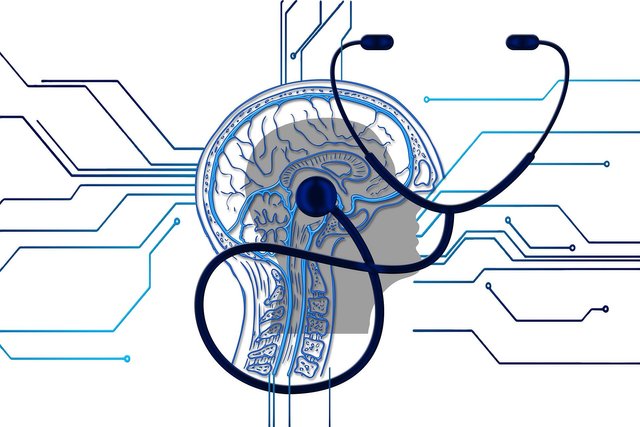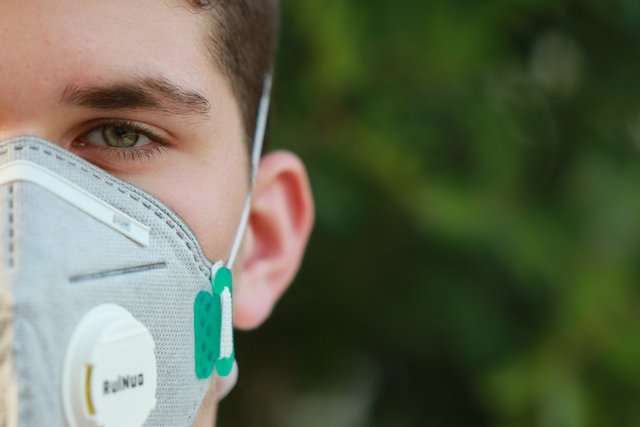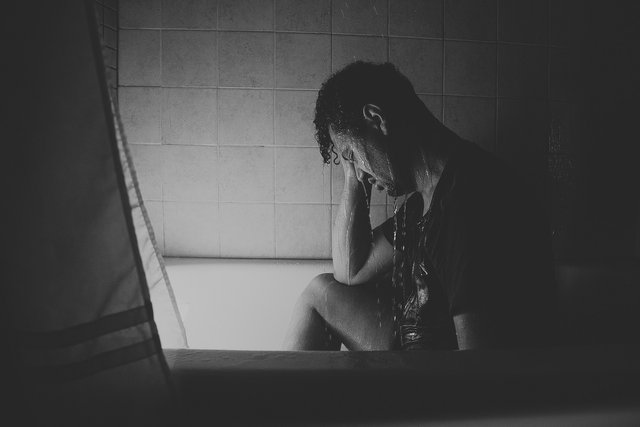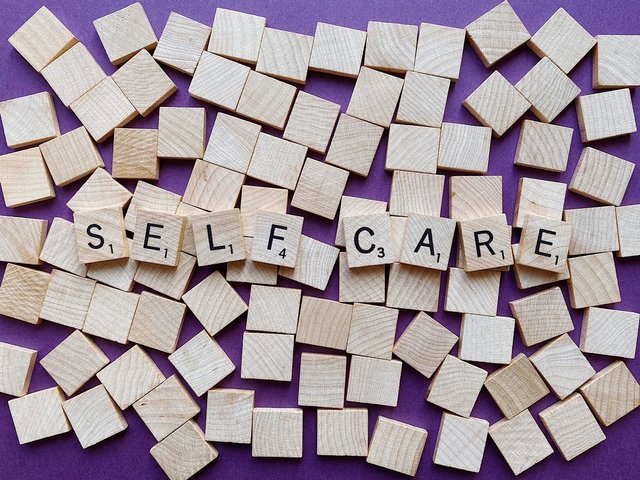INTRODUCTION
Over the years, humans have been more concerned about their physical health, partly neglecting their mental health unknowingly. It would not be out of place to see a patient walk into a health facility to consult a doctor about symptoms like cough, headache, or even chest pain.
On rare occasions that people walk into the hospital to lay a complaint about their mental health, there have been so many reasons given, but what stands out is stigmatization. People would not want to be associated with a mental illness and would prefer to remain at home rather than visit a health facility to get help.
The definition of Health hasn’t changed; it remains a state of complete physical, mental, and social well-being and not merely the absence of disease or infirmity.
This means for one to be termed healthy, his mental and social health has to also be accounted for. Unfortunately, many people seem to overlook the mental health and social component of health when they think about their health, thus relegating mental health to the background. Research has it that about 1 in every 4 humans in the world has one or more mental health issues without knowing and may be functioning properly.
But when stressors and other factors come into play, the symptoms of mental health become more evident.
Stressors could be a chemical or biological agent, environmental condition, external stimulus or an event seen as causing stress to an organism. Psychologically speaking, a stressor can be events or environments that individuals might consider demanding, challenging, and/or threatening individual safety. source
Some people even ascribe these symptoms to spirituality based on their beliefs and may end up having serial visits to spiritual homes to seek for solutions.
CORONAVIRUS
One of the recent stressors that have ravaged the whole world in the year 2020 is the novel coronavirus which was recently declared a pandemic by the world health organization.
The symptoms associated with this respiratory illness include fever, cough, sore throat including chest tightness and difficulty in breathing. Recently loss of taste and loss of smell has been added to the symptom checklist based on observations.
It won’t be out of place to get questions inquiring about travel history in the past weeks, or having contact with people who had the above symptoms described earlier. These are now routine questions that help to raise a high level of suspicion to help make a diagnosis.
With the widespread of the deadly disease, the whole world has been affected; the government has enforced full lockdown with measures to enforce the lockdown. There have also been recommendations about social distancing and the need to properly use a face mask in order not to contract the deadly virus.
THE IMPACT OF COVID-19 ON MENTAL HEALTH.
The news has not been so palatable to some individuals as they are used to their previous way of lifestyle (freedom), there have been some doubts amongst many, while others have been overtaken by the panic and hysteria the present situation of things have caused and have come down with fear and anxiety disorders.
Generally, these could be better understood if the population was divided into three categories.
GENERAL POPULATION
It won’t be out of place for some of the general populace to experience certain psychological conditions like:
- ACUTE STRESS DISORDERS- Some people have witnessed people die from the deadly disease and could come down with this condition. These individuals could come down with certain symptoms like pounding of the heart (palpitations), difficulty in breathing, chest pain, headaches, sweating, nausea, and frequent stomach pains. With some of these symptoms that look like that of COVID-19, these individuals may have sleep disturbances, difficulty in concentration and even experiencing positive emotions and this could be very distressing to the individual
- POST TRAUMATIC STRESS DISORDER (PTSD). if the above symptoms of acute stress disorder persist for more than 30 days, then this is known as PTSD and such individuals would certainly need to be managed properly.
- WORRIED-WELL SYNDROME- Some people may think they may be experiencing the symptoms akin to COVID-19 and may get worried about this. These patients are healthy and not sick and would only need reassurance by the medical expert on their present state of health.
- ANXIETY DISORDERS- Many others may experience different forms of anxiety disorders e.g. panic disorders.
- SUBSTANCE USE DISORDERS- with COVID-19 truncating the economic and financial sector, many people have lost their jobs, a few others have not been able to recover from the shock of job loss, so they result to alcohol use and other substance use (like cocaine, heroin, etc.) to be able to’ calm their nerves’ and forget their sorrows. These people end up getting addicted and also depending on this newly formed habits.
IMPACT ON THOSE WITH EXISTING MENTAL DISORDERS
The majority of patients with existing mental health conditions are from the lower socio-economic class of the society, they are not left out as they depend on daily incomes made from doing menial jobs to make ends meet. With the lockdown and movement restrictions, these people may have additional stressors and may end up with a relapse case. These people may not have money to be able to afford medications during this period and may end up deteriorating badly.
IMPACT ON HEALTHCARE WORKERS.
- STRESS- There has been a gradual build-up of stress amongst health care individuals (especially those in the mental health facilities ) as many more people are now coming down with mental health issues because of the COVID-19 which happens to be a major precipitating factor. The clinic hours are now prolonged and exhausting which tells on the healthcare providers at the end of the day.
- INCREASED SUSCEPTIBILITY TO INFECTION- healthcare workers are the first point of contact with the sick people and are at risk of contracting the deadly virus every day. Some of them have contracted the virus with classical symptoms, self-isolated, and got better. Others were not so fortunate.
- BURDEN ON THE HEALTHCARE FACILITY- With a growing number of patients, the facilities capacity is sometimes overstretched with inadequate equipment’s to cater for the surplus patients.
HOW TO CARE FOR YOURSELF
Caring for our mental health should be one of our priorities in these trying times, so we do not risk the chance of coming down with a mental health problem. The following are good recommendations:
ADEQUATE SLEEP- It is important to get at least 6hours of sleep every day. Sleep is very important for good mental health and brain development. There have also been numerous benefits ascribed to sleep.
REGULAR PHYSICAL ACTIVITIES- It is also important to indulge in regular physical activities that would help you keep your brain active. This can keep you preoccupied and also help kill boredom in the long run.
EAT HEALTHY- During this period, there may be temptations of overeating due to boredom. It is important to eat healthy always because a healthy diet is also important to good health.
LIMIT SCREEN TIME- Prolonged exposure to a phone screen, laptop, or desktop screen could be dangerous to the eyes. Limiting screen time would help reduce the risk of damage to the eyes.
LIMIT EXPOSURE TO MEDIA- The media could increase panic and hysteria if one get himrself/herself exposed to it. For the sake of sanity, it is advisable to restrain from unverified media reports or news for the sake sanity. That energy could be channeled into watching an interesting movie, developing a new skill or catching up on old friends.
MAKE CONNECTIONS WITH FRIENDS AND FAMILY-You are not alone in the lockdown, friend and families are also with you, Thanks to social media we can video chat, or even send an SMS to check up on loved ones. This act of kindness would make them feel loved and cherished and also boost their mental health.
CONCLUSION.
Mental health awareness is imperative in these trying times as people are experiencing life stressors caused by the novel coronavirus. Education and sensitization of the public of the potential health impacts should be the responsibility of healthcare workers.
Timely intervention would help reduce the chance of coming down with a mental breakdown in this pandemic as healthcare professionals continue to unravel the mysteries of the coronavirus while awaiting the discovery of a vaccine.




